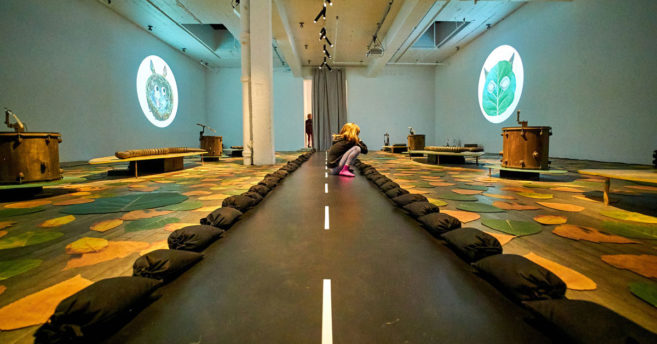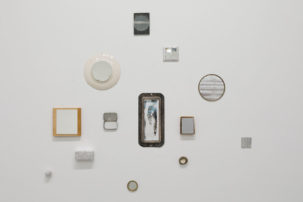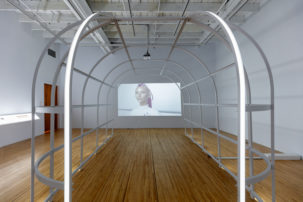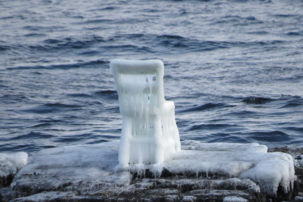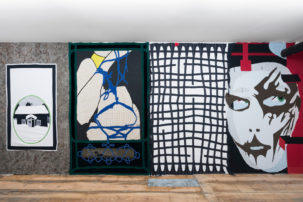Celebrated New York artist Eric Fischl has numerous Canadian ties, notably his 1970s teaching stint at the Nova Scotia College of Art and Design, so his work crops up here from time to time in unlikely, intimate places. Last year, Toronto’s Paul Petro Contemporary Art hosted three of the artist’s matador-themed lithographs in its small upstairs space: a spare adjunct to his lavish new Corrida Paintings, and thus a minor outing, but pleasant nonetheless. Now, Barbara Edwards, who knows Fischl from her days at Yorkville’s defunct Sable-Castelli Gallery, presents seven new watercolours on paper. All works are making their debut at Edwards’ gallery and, while they’re small statements in the context of Fischl’s grand, provocative oeuvre, they function as quick, elegant investigations into the psychology of the nude.
Fischl has been exploring watercolour throughout his career, but has made finer, more prolific strides with the medium over the past decade or so. In the tradition of Rodin, most of Fischl’s recent works explore kinesis: in some, it appears as though the artist is portraying dancers; in others, he exalts the fleshy recline in the vein of the classical odalisque. Colours alternate between the absolutely vibrant (lots of tangerine) and the muddy (mostly grey). Simple exercises on the one hand—the chance markings and splatters of the medium provide much of the works’ richness—they also render the body as both symbol and conduit: the scar, as Yoko Ono once said, of the mind.
The works at Barbara Edwards differ slightly in showing the body at relative rest. Fischl enters, as is his wont, as self-conscious beholder, casting his gaze on a single woman adopting various positions. The colour dichotomies of previous watercolours meet: the tangerine becomes browner, burnished; the grey becomes violet. In two works (all are untitled), Fischl allows for watermark blots on the figure’s face. She is probably backlit by bright sun—sex and/or nudity in the daytime is one of the artist’s predilections—but it is in the shadows where Fischl finds his contemplative target, letting colours pool to suggest the vacillations and yearnings of the erotic-romantic imagination.
Much has been said about the menace in Fischl, from his 1980s underage-lust allegories to the violence of the Corrida Paintings. What is rarely remarked upon, however, is his equivalent gentleness, a brisk, matter-of-fact way of presenting things at which other artists might blanch in baroque horror. Fischl’s watercolours are like a post-coital yawn on Sunday: languid, unpremeditated and modestly delicious.



